Link to the Ecomedia Literacy Table of Contents Lopez et al. Editorial Overview JSE April 2020 Ecomedia Literacy PDF Forward from JSE Editor-in-Chief, Clare Hintz: The Journal of Sustainability Education marks its tenth anniversary year with an issue on Water Literacy (published in March) and this issue, Ecomedia Literacy. From a dream of several Ph.D. […]
Continue ReadingAbstract: The field of media education, emerging within the instrumental vision of modernity, has largely ignored its unspoken modernist assumptions. In this article, we argue the time has come to fully engage an embodied view of media from an evolutionary, ecological perspective—what we might call ecological modernism. This is a perspective that views media as evolving mediations through various material/technical practices, where body knowledge, rather than some idea of objective reality, is understood as the empirical ground for how we come to make sense of ourselves and the world. The focus is then shifted from the problem of subject versus object relationships to how subjects and objects are mutually constitutive. By extension, the juxtaposition of the concept of citizen with the body clarifies yet another crucial dimension of the embodied perspective. Two examples of “citizen”-based media education projects are briefly reviewed from this ecological modernist perspective in order to consider the implications of resituating grounded citizen-oriented media education.
Continue ReadingMovies as Mirrors is a conversation podcast in which guests discuss films that reflect a social issue that interests or affects them. On this episode, Professor of Humanities George Handley discusses the 2011 film “The Tree of Life” with podcast creator Benjamin Thevenin and guest-host Camlyn Giddins. The conversation explores the film’s representations of our relationship with the natural world, and in particular its use of eco-theology to introduce its audiences to ecological issues. We discuss the value of film as environmental education for the public and the need for more nuanced cinematic representations of issues like climate change.
Continue Reading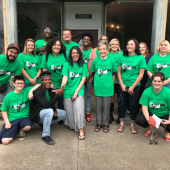
Abstract: In the summer of 2019, the We are All Connected urban-rural youth media program launched Something in Our Water, an eco-media documentary project that investigates the shared problem of water sustainability, public health, and climate change in their communities. This article discusses the transformative experience that the youth from New York City and the Clearfork Valley in the East Tennessee Appalachian mountains had as they learned about the history of multinational coal mine companies’ economic and environmental exploitation of the community, and the fierce and unequal power relations that continue to challenge environmental advocates today. With a focus on the perspectives of one of the Tennessee youth producers, the article reflects on the impact intergenerational learning and multicultural collaboration can have in nurturing future youth and community eco-media activists in Appalachia in the face of deeply rooted local and structural constraints. Through the process of documenting struggles in urban and rural communities, the youth team developed a deeper understanding of how the environmental justice movement cuts across differences to show how everyone is connected and can be empowered to take action.
Continue Reading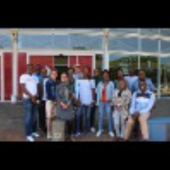
Abstract: Reporting to the public on climate change impacts, adaptation, and mitigation requires journalists to be equipped to engage with a wide range of technical content in order to communicate it in an accessible and engaging way. Recognizing the need for journalists from a wide range of backgrounds, including those from community newspapers and radio stations in South Africa, to be able to undertake this task, the South African Department of Environment Affairs in partnership with GIZ commissioned the authors to develop and deliver a four-day climate change reporting training programme. This paper presents an overview of the structure and content of the course, and details the reflections after undertaking such an endeavor.
Based on the lessons learned, and an awareness that this kind of training may take place in the context where working community-level journalists may have a low knowledge base (of both the journalistic craft, as well as the content of climate science) the following recommendations emerge: scientific training may need to be combined with basic journalistic training (depending on the participants); learning-by-doing is central to journalists building their capacity in climate reporting training; and mother-tongue delivery of material is critical to the success of such technical training courses.
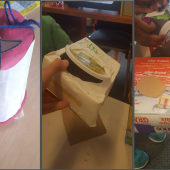
Abstract: This case study illustrates a cross-curricular learning experience, anchored in standards, where teachers and students actively engaged in co-constructed, inquiry-based learning and design thinking. The particular question this case study addressed was “How might students connect with environmental citizenship in authentic ways through media literacy experiences?” Specifically, the case study invited primary level learners to engage in a multimodal experience that was anchored in media literacy concepts and process. A pedagogical approach rooted in media literacy theory subsequently empowered students to make positive environmental changes in their communities and develop citizenship skills for the future. The project sought to develop awareness of sustainability through analysis, re-design, and production of snack food packaging. Educator reflections offer ideas for project improvement, such as producing for a wider audience, offering more choice, and making broader subject connections. This case study has implications for practice by demonstrating that, through various stages of scaffolding and integrated lesson design, young children are capable of applying sophisticated media literacy theory, inquiry, and design thinking to meet multiple curriculum standards.
Continue ReadingAmerica is falling behind the rest of the world in science and math. There is therefore, a renewed emphasis on STEM subjects (Science, Technology, Engineering, and Math). But while mastery of STEM subjects is essential to the functioning of society, we’ve neglected some other areas that are at least as important, if not more so. But without an equal commitment to comprehensive civics education — an examination of subjects that touch on the relationships between people, government, the economy, and media — all the technical know-how in the world will be for naught. The author suggests a renewed focus on MESH education, which stands for Media Literacy, Ethics, Sociology, and History. Because if these are not given equal attention, we could end up with incredibly bright and technically proficient people who lack all capacity for democratic citizenship.
Continue Reading
Abstract: The shift away from coal to renewable energy for electricity generation is producing environmental benefits during the climate crisis but also poses uncertainty for coal producers and others along the coal supply chain. Media representations of the coal debate shape how citizens understand and respond to it. This commentary exposes how audiences – even of pro-environmental media – reproduce dominant discourses promoted by fossil fuel corporations and reconceptualize those discourses into a Not in my Backyard (NIMBY) worldview. Critical discourse analysis helps to reveal how tensions between coal companies and renewable energy proponents are exacerbated by controlled coal messaging. Coal propaganda evokes images of a noble and reasonable energy source and places coal within a positive framework that enhances local knowledge, protection, and economic security. Conclusions point to the importance of media literacy instruction as a means for consumers to gain critical distancing strategies and broader perspectives about the climate crisis.
Continue ReadingAbstract: In recent years, media scholars and educators have made an effort to address ecological issues in their work. Ecomedia literacy adapts the principles and practices of the media literacy movement in order to prepare the public to critically engage with the relationship between media and the environment. However, this article argues that the philosophical frameworks, on which existing approaches to media literacy education are founded, are limited. The field’s reliance on traditions of constructivism and cultural studies allows learners to engage with ideas, but not things. The article argues that an ecomedia literacy that draws from speculative realism—in particular, in recognizing the reality of non-human things, emphasizing materiality, and challenging the nature/culture divide—will more effectively prepare the public to critically engage and practically respond to pressing ecological issues such as climate change.
Continue Reading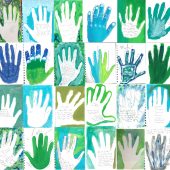
Link to the JSE April 2020 Ecomedia Literacy Issue Table of Contents Lopez Ecomedia JSE April 2020 Ecomedia Literacy PDF Abstract: Media is an ambiguous metaphor that changes meaning depending on how it’s used by educators. Typically media are only characterized by how they represent reality and communicate ideas. Consequently, the metaphor assumes a […]
Continue ReadingAbstract: This paper examines the ecologically oriented speculative fiction genre known as “solarpunk” and its value for the cause of environmental justice. This article argues that the status quo is characterized by relative inaction on the issue of fighting climate change and that this inaction is the result of an inability to imagine a “green” future. As a form of speculative fiction which explicitly depicts such green futures, solarpunk may be a valuable tool in promoting action by overcoming widespread cynicism about the future. Solarpunk fiction is thus a useful tool for sustainability educators because it encourages critical examination of one’s environmental impact. This article details the ways in which solarpunk stories function as counter-hegemonic media by intertwining issues of race, gender, sexuality, class, and colonialism with an ecological ethic.
Continue Reading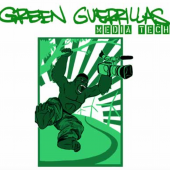
Abstract: The Green Guerrillas Youth Media Tech Collective, a community organization based in Ithaca, New York, set out to define sustainability in their own terms by giving a diverse group of local adolescents the opportunity to engage subjects of environmental and social justice through digital media production within the auspices of a unique afterschool job-training program. Interviews with youth participants and adult mentors illustrate key concepts for environmental and sustainability educators desiring to facilitate engaging learning environments utilizing multimedia. Excerpts of their interviews provide a lens into the workings of a non-formal educational environment that explicitly embraced media literacy, media arts production, and community engagement to advocate for issues of justice and sustainability while facilitating opportunities for ecological learning. This case study highlights the potential of digital storytelling to foster students’ knowledge retention, connection to nature, sense of empowerment, and ability to create positive change in their communities.
Continue Reading